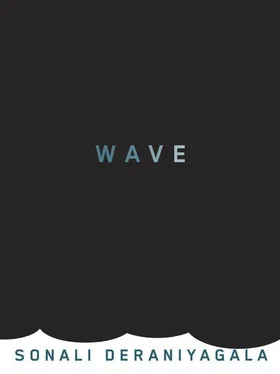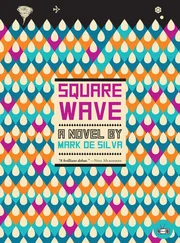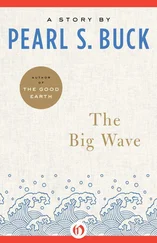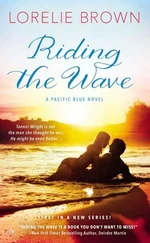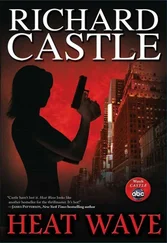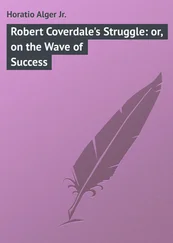All that they were missing, I desperately shut out. I was terrified of everything because everything was from that life. Anything that excited them, I wanted destroyed. I panicked if I saw a flower. Malli would have stuck it in my hair. I couldn’t tolerate a blade of grass. That’s where Vik would have stamped. At dusk I shuddered when I glimpsed the thousands of bats and crows that crisscrossed the Colombo sky. I wanted them extinct, they belonged in my old life, that display always thrilled my boys.
Now I had to make myself safe. I had to shrink my sight. I disappeared into darkness. I shut myself in the room. Even with the curtains closed, I pulled the covers over my head.
The traffic outside my aunt’s house was endless. The noise stripped my nerves. But it felt fitting to be in that grueling din. I could better make them dead when I was constantly jolted like this. These were the warped sounds of life without them. From our bedroom in London we mostly heard finches and robins and the thump of a football.
London, the thought of it, I felt horror. Our home. Their school. Their friends. Taking the Piccadilly Line to the Natural History Museum. The jingle of the ice-cream van. What do I do with all this? I wanted to shred my knowledge of our life.
I was frightened of Sundays. It was just after nine on a Sunday morning that the wave came for us. Now I tried not to look at a clock on a Sunday morning. I didn’t want to know that it was exactly at this time two, three, four, ten, fifteen weeks before that life ended, for them, for us. In Colombo we went swimming on Sunday mornings. Now I steeled myself against the sensation of Malli’s silky earlobes on my cheek as I held him in the deep. Now I didn’t want to acknowledge that it was a Sunday morning and Vik would never again have a tantrum because Steve was reading the papers and not taking him to the park. That it was a Sunday morning and Steve would never again smear newsprint on the toilet seat.
This could not have happened to me. This is not me. I teetered endlessly. Look at me, powerless, a plastic bag in a gale.
This is not me. I’d lumber into the shower, and unable to work out how to get the water going, I’d stare at the taps and get dressed again, squirm back into bed. I felt I was falling and falling as I lay motionless on that bed, plummeting so fast I had to grip the sides.
How is this me? I was safe always. Now I don’t have them, I only have terror, I am alone. My stomach cramped. I pressed a hot water bottle to my chest to calm the hammer blows to my heart, but they wouldn’t stop.
I stabbed myself with a butter knife. I lashed at my arms and my thighs. I smashed my head on the sharp corner of the wooden headboard of the bed. I stubbed out cigarettes on my hands. I didn’t smoke, I only burned them into my skin. Again and again. My boys.
I don’t have them to hold. What do I do with my arms?
Soon, very soon, I have to kill myself.
I was never left alone. An army of family and friends guarded me night and day.
Natasha kept hold of me, not leaving my side for half that year. Ramani infuriated me by tapping on the bathroom door if she thought I was taking a suspiciously long time, but my body was so clenched that I had to sit on the toilet with all the taps running for ages just to pee. I chased Keshini out of the bedroom at night, accusing her of snoring too loud, yet she took six months off from her job in the States to watch over me. Amrita warmed me and distracted me, her job abandoned, children left in other people’s care. Gunna and Darini coaxed me to take a few steps outside that room. Ruri snuggled into bed with me to cry.
Sometimes I would drag myself into the kitchen — maybe I can slit my wrists — but someone would steal up behind me. Besides, they had hidden all the knives. My aunt gave me a sleeping pill at night, carefully rationed, just one. I tried to hoard them, together with some bottles of painkillers I’d found. Then Natasha discovered my stash and yelled at me like I was a bicycle thief. I thought every day about throwing myself under one of the buses that hurtled by outside. But Natasha assured me that if I didn’t succeed and instead became paralyzed, she would leave me all day in my wheelchair in the middle of the garden, alone.
I insisted I never wanted to see our friends in London or Steve’s family again. That life was over. But they turned up.
When our friend Lester walked into my blackened room and told me he was so glad I was alive, I shouted at him. Didn’t he get it, stupid man, I wanted to die. Lester had been in Colombo with us only a few months before, in the summer. We’d gone to cricket matches where he impressed Vik by drinking too much beer. We went to the rain forest where Malli woke him too early each morning to go for a walk. And now Lester is here because they are all dead?
I was bewildered when Anita appeared sobbing in my room. We’d said goodbye to each other after the school Christmas concert weeks before, shouting at our children not to trip on their costumes as they raced down the road. And now? Anita kept telling me that I had to live, without me she couldn’t raise her girls. Fuck off, I thought.
Steve’s family came to Colombo, again and again. When his brother-in-law Chris began telling me about the memorial service they were planning in London, I asked him to stop. Memorial service? That was outlandish. Still he persisted, asking me to choose some music for the service, cajoling me gently by mentioning that my mother-in-law had remarked, “Well, when Stephen was a boy he liked some band called Slade.” I braced myself and told Chris to play some Coltrane. Just saying that word made my heart convulse. I saw Steve in our kitchen, grilling fish, listening to A Love Supreme .
Steve’s sister Beverley sat on my bed wiping her tears. On the morning of the twenty-sixth of December, she had woken up in London, weeping. At the time she hadn’t been able to imagine a reason for this, it was the morning after Christmas, they’d had a typically happy and raucous family gathering the previous day. But before someone phoned her with news of a tidal wave in Sri Lanka, she had been crying. As she told me this, I could only think, her chin, her chin, her chin is Steve’s.
I didn’t want to step out of that room. The only time I willingly raised myself from that bed was to go to the bathroom to brush my teeth. I brushed my teeth diligently and often. I shuffled to the bathroom every few hours and carefully squeezed toothpaste onto my brush. I brushed hard. My arm hurt, but I kept going, “giving it some welly,” as Steve would say. I tried not to think of Steve’s words as I looked in the mirror and focused on my frothy mouth. I liked the sound of my frantic brushing, but I hated the toothpaste, it tasted of cloves and made me gag.
I resolved not to leave the house, ever. How can I go outside? Outside was where I went with my boys. How can I walk without holding on to them, one on each side?
There were all those first times. The first time I came downstairs in my aunt’s house, frightened, knowing I wouldn’t see a heap of shoes by the front door, as there was at home. The first time I walked on a Colombo street and couldn’t bear to glimpse a child, a ball. The first time I visited a friend and was nearly physically sick. Steve and I had been here with the boys just weeks before, my children’s fingerprints were on her wall. The first time I saw money, I was with my friend David, who wanted to buy a comb, having come from England without one. I trembled as I peered at that hundred-rupee note in his hand. The last time I saw one of those, I had a world.
There was the first time I saw a paradise flycatcher. I thought then I should never have allowed my friends to open the curtains in my room. I had been much safer in blackness. Now sunlight splintered my eyes, and that familiar bird trailed its fiery feathers along the branches of the tamarind tree outside. No sooner I saw it, I turned away. Now look what’s happened, I thought. I’ve seen a bird. I’ve seen a flycatcher, when all the birds in the world should be dead.
Читать дальше
